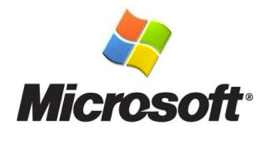Microsoft really wants to make sure it can compete against Amazon and Apple in the e-books space — and it’s putting its money where its mouth is. In addition to the $300 million Microsoft is investing for a 17.6 percent stake in Newco, the un-named subsidiary that will now house B&N’s Nook and other digital businesses, it looks like it is putting other money towards the venture, according to the 8-K form filed by Barnes & Noble earlier today.
A section called “Commercial Agreement” notes that Microsoft will be paying the Barnes & Noble subsidiary $180 million in connection with revenue sharing on the Nook app that B&N will make for the Windows 8 platform. This is nonrefundable, the filing notes. Microsoft is also paying $125 million (equal to $25 million over five years) “for purposes of assisting NewCo in acquiring local digital reading content and technology development.” This, too, looks to be nonrefundable.
The 8-K form appears to note that this is on top of the $300 million investment, and it will only become effective once the investment deal is closed. It also notes that it can only be terminated by Microsoft in case of bankruptcy or insolvency of Newco; a material default at Newco; or by Newco for a similar material default by Microsoft. The exact terms of the revenue share are not included in the filing.
The 8-K form was filed after the two companies came together for a joint call with analysts. That, too, gave a little more insight into what the deal will entail.
Andy Lees, president of Microsoft, is leading on the deal for his team, and he made it clear that while today there was no news on devices or any “product roadmap,” this was about more than just a book app for Microsoft’s next OS: “The option here is to define the future of reading,” he said. “We’re more than just the platform provider.” His take today was to turn that into a wider conversation about experience and discovery, but what people really want to know was whether that means a Windows Nook.
Today, no direct answer on that but no denial, either. “We’ve been working with hardware manufacturers to provide [the minimum requirements]” for them to make Windows 8 tablets with the lowest-costing processors and other equipment, he said. He also claimed that Microsoft has “not yet done teardown of the Nook,” to determine whether it would run Windows 8 as it is today.
Similar to the lack of specifics on hardware there was also little detail from the B&N end on Windows 8, but again no flat-denial: “We have no plans to sell Windows software right now…but this partnership opens up a whole host of opportunities going forward,” noted B&N’s CEO William Lynch.
And while B&N has taken only small steps in looking at how it would roll out a Nook in Europe, today B&N’s Lynch made a much more forward commitment to the idea: “We think the opportunity is through this partnership internationally,” he said in answer to a question of whether it was more of a domestic or international play. This will also throw into question whether B&N is going, after all, to do anything with Waterstones in the UK, as many have thought it would.
Another thing that didn’t come up much in today’s call: Android. “Microsoft is the ideal partner for the Nook,” noted Lynch. “Few companies own more screens than Microsoft.” So it’s clear that B&N can use Microsoft’s platform as an outbound route to getting more traction on its Nook platform. The question is whether Microsoft can use Nook’s platform to its own advantage.
That’s a question that some have already started to weigh up:
“My 1st reaction: MS just invested $300M in further insuring Android fragmentation. B&N will now have resources to eat with a fork,” quipped Charlie Kindel, the ex-Windows Phone boss who is now an angel investor and entrepreneur.
That wasn’t his only thought. The other underscores a challenge Microsoft has to try to make this work when its other attempts have gone nowhere: “Today, I feel for the members of the old Microsoft Reader team (and Bill Hill). So typical of MS to ignore its visionaries,” he noted, referring to the exec who left Microsoft in 2009 — ironically before Amazon launched its first Kindle e-reader.
